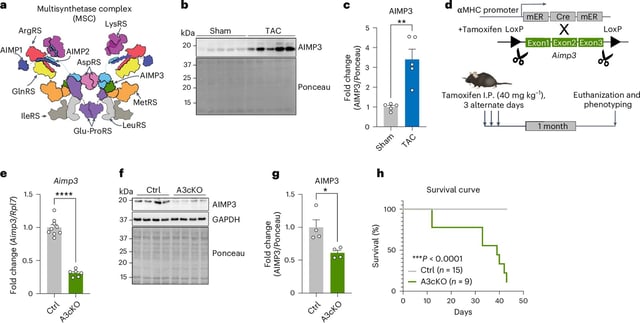Overview
- Researchers at Brown University identified AIMP3 as a crucial factor for heart survival by enabling MetRS to eliminate toxic homocysteine.
- Deleting AIMP3 in mouse cardiomyocytes led to homocysteine accumulation that induced oxidative stress, protein aggregation, mitochondrial dysfunction, inflammation and lethal heart failure.
- The findings, published in Nature Cardiovascular Research, uncover a previously unknown protein-editing role that may extend beyond cardiac tissue.
- With cardiovascular disease remaining the leading global killer and no effective repair therapies available, scientists see AIMP3 modulation as a promising preventive strategy.
- As a next step, the team is conducting targeted mouse trials to assess if elevating AIMP3 expression can strengthen cardiac stress resilience and inform new treatments.
